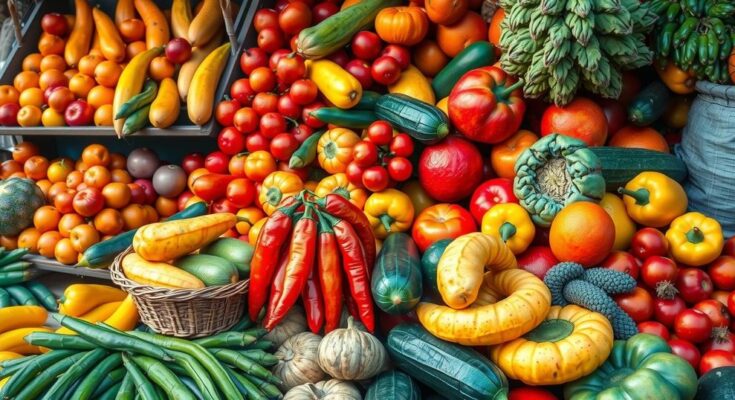Brazil faces heightened demand from China due to U.S.-China trade tensions, enabling Brazilian agricultural exporters to potentially increase their market share at the expense of U.S. farmers. This surge in demand may lead to rising domestic food prices, contributing to ongoing inflation issues. While government officials are working to mitigate these pressures, forecasts suggest a positive long-term outlook for Brazil’s agribusiness sector.
Brazil is facing a surge in Chinese demand for its agricultural exports as a result of the ongoing trade war between the United States and China. This shift presents an opportunity for Brazilian agricultural exporters to expand their market share in China, particularly for soybeans and meat, at the expense of American competitors. Consequently, increased export demand may drive domestic food prices higher, intensifying the challenges Brazil currently faces regarding food inflation.
China has responded to new U.S. tariffs by imposing increased levies on $21 billion worth of American agricultural goods. These actions are expected to enhance Brazil’s position as the world’s largest exporter of soy, beef, and chicken, as Chinese importers seek alternatives to higher-cost U.S. products. The ongoing trade dispute has led to a significant shift in market dynamics, with Brazil benefitting from a sustained increase in Chinese agricultural imports.
As a result of the heightened demand, soybean prices in Brazil have already begun to increase, reaching a seasonal peak at local ports. Projections suggest that additional demand from China could enhance Brazil’s export capabilities while yielding healthier prices. However, reduced local supply may lead to increased costs for domestic animal feed, affecting local meatpackers like JBS and BRF.
The increase in food prices has placed considerable pressure on President Luiz Inacio Lula da Silva’s administration, causing significant public discontent amidst rising inflation. Recent statistics indicate that food and beverage prices surged by 8% over the previous year, with food costs continuing to rise for the fifth consecutive month. In response, government officials are meeting with food industry leaders to explore strategies aimed at mitigating these price increases.
Looking ahead, experts anticipate that the latest tariffs may lead to long-term changes in global trade patterns, fostering Brazil’s capacity to diversify away from U.S. agricultural supplies. Projections for Brazil’s agribusiness are overwhelmingly positive, with forecasts indicating record production levels and exports of key agricultural products, including soybeans and meat.
Industry representatives believe that this transition in global trade dynamics will offer Brazil significant benefits, especially in terms of pricing and profitability. As Ricardo Santin from the meat producers’ lobby group ABPA suggests, the anticipated gains from increased exports to China could outbalance the higher costs associated with feed, thereby enhancing the country’s economic prospects in the agricultural sector.
In conclusion, Brazil stands to gain significantly from the increasing Chinese demand for its agricultural products amid ongoing U.S.-China trade tensions. While this presents opportunities for greater market share in China, it also raises concerns regarding rising food prices domestically, challenging government efforts to control inflation. The future outlook for Brazil’s agribusiness remains promising, with expectations of record harvests and a shift in trade dynamics favoring Brazilian exporters.
Original Source: www.tradingview.com




